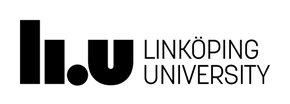Cybersecurity

Help defend the society against cyberattacks and develop next-generation security solutions. During this two-year master’s programme you will get cybersecurity competence needed in every sector of society. The combination of theoretical courses and practical exercises will give you the right tools to meet the digital security challenges of today and tomorrow.
Cybersecurity has become one of the most critical challenges for the future. Linköping University conducts world-class research in the cybersecurity field, and this master’s programme offers the breadth of knowledge required to succeed in the cybersecurity landscape. During these two years you will get cutting-edge knowledge and expertise skills in cyberlaw, digital forensics, organisational security, and social engineering attacks and defences.
Benefit from latest research
You follow technically advanced courses in software security, system and network security, and cryptology – all based on our deep cybersecurity competence. Your professors and lecturers conduct their own research and have qualified experiences from the field. In the second semester you will participate in an ethical hacking course and train your ability to defend and challenge state-of-the-art security solutions.
Digital tools to assess sustainability
Sustainable developments are implemented in the programme in several ways. For instance, the course Professionalism for cybersafety includes strategies and solutions for sustainable development of social, technological and ecological systems, understanding of human impact on ecosystems, and digital tools to assess sustainable development with focus on computer science.
Na studia magisterskie mogą kandydować wszyscy, którzy ukończyli studia licencjackie lub inżynierskie (studia I stopnia), studia magisterskie lub studiują na ostatnim roku studiów I-stopnia. Studia, które planujesz powinny mieć zbliżony profil do tych obecnych lub ukończonych, ponieważ w procesie rekrutacji kluczowa jest ich zgodność programowa.
- Wykaz punktów ECTS – osoby, które są jeszcze w trakcie studiów, muszą załączyć wypis punktów ECTS, w którym będzie wykazane, jakie przedmioty były realizowane na studiach oraz ile punktów za nie otrzymano.
- Dyplom ukończenia studiów licencjackich lub inżynierskich – jeśli jesteś absolwentem wyższej uczelni, nie potrzebujesz wypisu, wystarczy załączyć dyplom ukończenia studiów wraz z suplementem (oryginał z tłumaczeniem przysięgłym)
Spełnienie wymagań w zakresie języka angielskiego można udokumentować w następujący sposób:
- IELTS - 6.5 (minimum 5.5 z każdej części) lub
- TOEFL – 90 (w tym minimum 20 z pisania). Wynik musi zostać przesłany na uczelnię bezpośrednio z centrum egzaminacyjnego.
*Wymagania językowe mogą się zmieniać i różnić w zależności od kierunku - przed aplikacją sprawdź wymagania bezpośrednio na stronie uczelni.
A bachelor's degree with a major in one of the following or equivalent subject areas:
- computer science
- information technology
- software engineering
- computer engineering
Or a bachelor's degree with a minor in computer science or related subject area, with a minimum of 60 ECTS credits in computer-related subjects equivalent to:
- programming
- data structures
- databases
- software engineering
- computer hardware
- computer networks
At least 22 ECTS credits in mathematics/applied mathematics and/or application of mathematics relevant for the programme including courses in discrete mathematics, linear algebra and calculus.
English corresponding to the level of English in Swedish upper secondary education (English 6).
